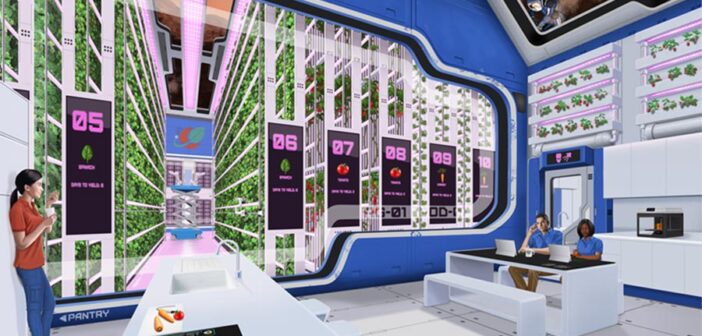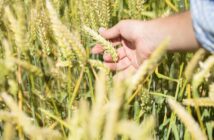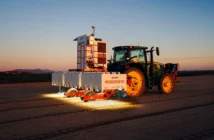Vertical Future, a UK-based vertical farming technology specialist, has been awarded a grant of £1.5m to adapt their controlled-environment-agriculture (CEA) systems for space.
They will prototype them in Low Earth Orbit (LEO), implementing systems in the first commercial space station, which is being constructed by Axiom Space and due for orbit in 2026.
Vertical Future’s proposal was selected by the UK Space Agency to drive innovation and sustainability alongside ventures into commercial space exploration.
It aims to offer the first fully remotely monitored farm system enabling productivity tracking of systems on Earth, in orbit, and on lunar and Martian bases.
The initiative is part of the UK Space Agency’s £20m International Bilateral Fund program, and will make up the second phase of the “Autonomous Agriculture for Space Exploration” project.
The technologies being created will also be used beyond the initial plans for LEO and expanded into the 2030s as a key component for Mars missions.
Following this, the goal is to implement these systems onto the moon’s surface, and eventually, the surface of Mars itself.
Dr Jen Bromley, chief scientific officer and Autonomous Agriculture Project lead at Vertical Future, said: “The further we go into space, the more we will need to produce while we’re there, be it food, biomaterials, or medicines.
“Plants are able to be the biofactories to cover all of these needs. The ability to reliably grow off-Earth is not yet realised as the technologies to achieve this haven’t yet been implemented away from Earth at the scale required to sustain life.
“The autonomous agriculture project puts VF and the UK at the front and centre, leading and defining a new category for the commercial space sector: Agri-Space.”
The project was established through an international collaboration supported by the UK Space Agency, NASA, and Australian Space Agency (ASA).




